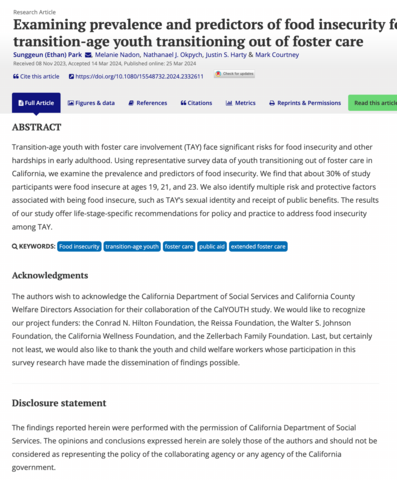Transition-age youth with foster care involvement (TAY) face significant risks for food insecurity and other hardships in early adulthood. Using representative survey data of youth transitioning out of foster care in California, the authors examine the prevalence and predictors of food insecurity. They find that about 30% of study participants were food insecure at ages 19, 21, and 23.
They also identify multiple risk and protective factors associated with being food insecure, such as TAY’s sexual identity and receipt of public benefits. The results of their study offer life-stage-specific recommendations for policy and practice to address food insecurity among TAY.

